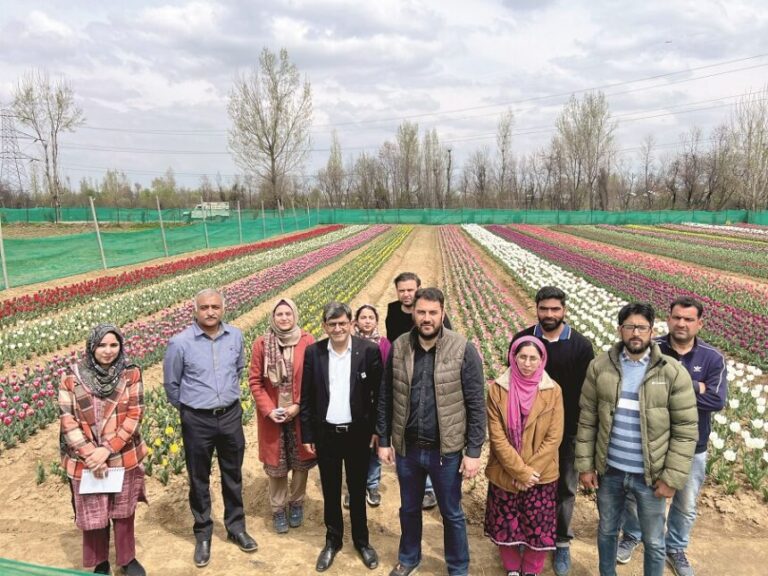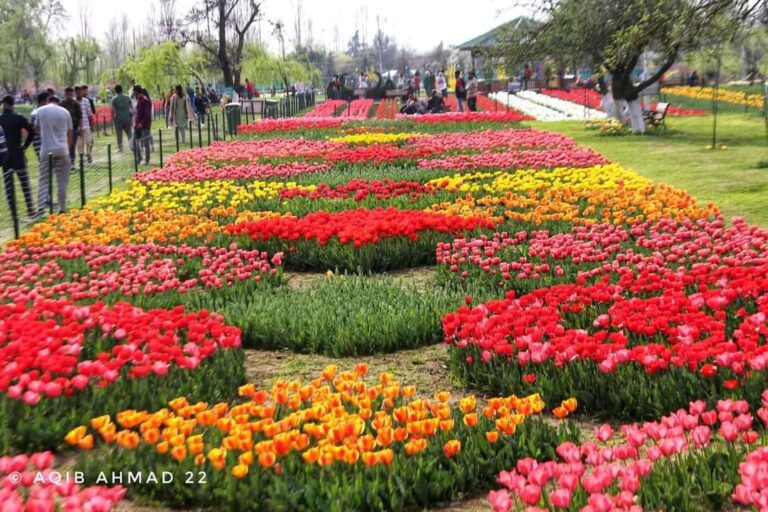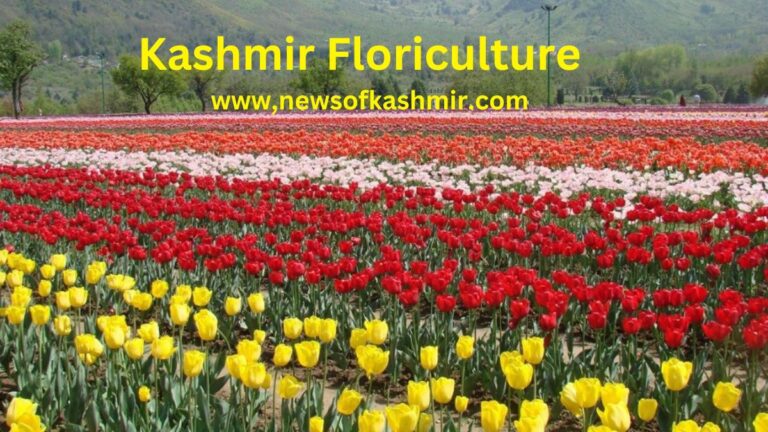Is Floriculture Profitable in Kashmir ?

Kashmir, famous for its beautiful landscapes and rich culture, is also known for its vibrant flower gardens. As the region looks to develop its economy, floriculture—growing flowers for sale—has become a promising industry. But is floriculture really profitable in Kashmir? Let’s explore the opportunities and challenges in this sector.
The Appeal of Floriculture in Kashmir
1. Ideal Climate:
Kashmir’s cool climate and fertile soil are perfect for growing flowers. The distinct seasons and moderate temperatures help flowers like tulips, daffodils, roses, and lilies thrive. The annual Tulip Festival in Srinagar highlights the region’s potential for floriculture.
2.Rising Demand:
There is increasing demand for flowers in local markets and abroad. More people are looking for flowers for events, weddings, and festivals. This growing demand opens up opportunities for Kashmiri flower growers to sell their products both locally and internationally.
3.Government Support:
The Jammu and Kashmir government has recognised the potential of floriculture and offers support through various schemes. These include subsidies for seeds and equipment, training programs, and improved market infrastructure. This backing aims to help the industry grow and become more profitable.

Opportunities in Floriculture
1.Diversifying Crops:
Farmers can boost their income by combining floriculture with traditional farming. Growing flowers alongside vegetables or fruits makes good use of land and increases overall farm earnings. High-value flowers, like exotic orchids, can bring in more money and attract special markets.
2. Tourism Potential:
Kashmir’s beauty and flower variety offer opportunities for agri-tourism. Flower gardens could attract tourists, providing extra income through entry fees, tours, and flower-picking activities. This could also lead to new businesses, such as floral workshops and local crafts.
3.Job Creation:
Expanding the floriculture industry can create jobs in rural areas, helping to reduce unemployment and offer new sources of income. Jobs related to flower growing, packaging, marketing, and transport can boost the local economy.
Challenges and Considerations
1.Market Access and Infrastructure:
A major challenge is getting flowers to the market and having good infrastructure. In winter, snow can block roads and delay flower deliveries. Improving storage facilities and transport systems is crucial to keep flowers fresh and reduce losses.

2.Pest and Disease Control:
Managing pests and diseases is essential in floriculture. These problems can reduce flower quality and yield. Farmers need to invest in pest control and follow best practices to prevent and manage plant diseases. Training and modern farming techniques can help address these issues.
3.Investment and Risk:
Starting a floriculture business requires a significant initial investment for seeds, equipment, and land preparation. The industry can also be unpredictable, with profits varying based on market conditions. Investors need to consider these risks and plan for long-term success.
Conclusion
Floriculture in Kashmir offers exciting opportunities for economic growth and diversification. With its suitable climate, increasing market demand, and government support, the sector has the potential to be profitable. However, addressing challenges like infrastructure, pest management, and investment risks is crucial. As the industry develops, floriculture could become a key part of Kashmir’s agricultural economy, enhancing its global reputation and bringing prosperity to its communities.
| HelpLine | |
|---|---|
| Jammu | 18001807200 |
| Kashmir | 18001807201 |
You can Contact Higher Authorities on these Contacts:
Directorate of Floriculture, Parks and Gardens Department Kashmir. 0194-2482032 [email protected]
Directorate of Floriculture, Parks and Gardens Department Jammu. 0191-2435121 [email protected]
Administrative Departments Srinagar. 01942506595
Administrative Departments Jammu.





